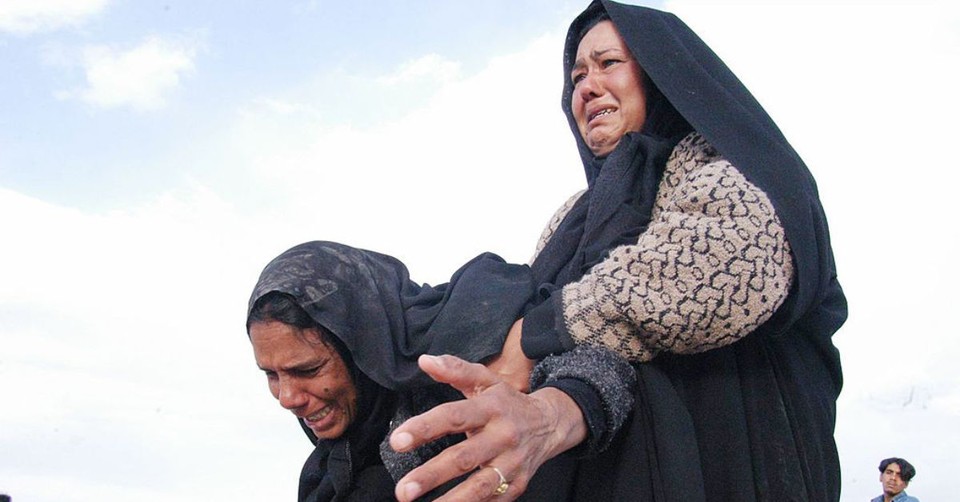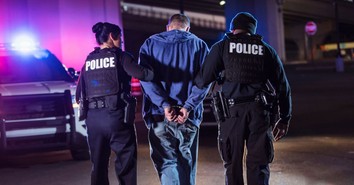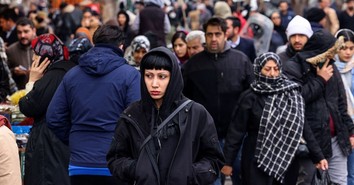Inside Iran’s Brutal Regime and the Hope for Redemption

In the wake of Israel’s remarkable attack on nuclear facilities, military and other strategic targets, and leaders of the Islamic Republic regime in Iran, I have received many questions about the situation informally from people on social media and in a variety of media interviews. Allow me to share some important background and perspectives.
Before the 1979 Islamic Revolution, Iran was a monarchy under the Pahlavi dynasty, with Reza Shah (1925–1941) remembered as a respected modernizer who fostered ties with nations like Israel and the United States. His deposition in 1941, orchestrated by Allied forces, marked a turning point. Following World War II, the rise of the Soviet-backed Tudeh Party, a communist organization, attracted many students and intellectuals. By 1953, nationalist movements led by Prime Minister Mohammad Mossadegh, supported by communist factions, attempted a coup against Reza Shah’s son and successor, Mohammad Reza Shah. This coup was thwarted with CIA and MI6 assistance, preserving the monarchy.
The 1970s witnessed growing dissent among youth, fueled by Marxist and leftist groups like the Fedaiyan-e-Khalq and the Mujahedin-e-Khalq (MEK), which blended Islam and Marxism. These groups, alongside radical Islamists, orchestrated riots and guerrilla activities against the Shah. In 1979, with the instigation of Ayatollah Ruhollah Khomeini, a coalition of leftists, Islamists, and mullahs overthrew the monarchy, establishing the Islamic Republic. Khomeini’s regime swiftly consolidated power, creating the Islamic Revolutionary Guard Corps (IRGC) to suppress dissent and export revolutionary ideology. The regime’s early years were marked by brutal purges of anyone who the Islamic regime perceived as a threat. Mohammad Sadegh Khalkhali, known as the “hanging judge,” was responsible for the execution of thousands following summary trials. Many others participated in this massive domestic bloodletting and fear campaign.
The 1980–1988 Iran-Iraq War, initiated by Iraq but prolonged by Khomeini’s ambition, devastated Iran, claiming around one million lives, including many teenagers conscripted into the conflict. The war entrenched the regime’s control, diverting domestic dissent. Since 1979, the Islamic Republic has imposed strict Sharia-based laws, particularly targeting women through often brutal misogynist patterns, even empowering brothers against their sisters, forcing women to wear the hijab, and severe punishments for non-compliance. Protests by women were crushed, setting a pattern of brutal suppression.
The Islamic Republic regime’s systematic violation of human rights is widespread inside Iran, with tens of millions of Iranians suffering. The IRGC and “morality police” have enforced laws targeting women, dissidents, and minorities. Women have faced arrests, imprisonment, and sexual violence for defying hijab mandates or participating in protests.
In my books, I have explained the countless ways in which I suffered under the Islamic regime, from elementary school through the subjugation by my brothers, indecent expectations of men in power, and my husband’s torture and his death.
Iranians have repeatedly protested against the regime, notably in 1999, 2009, 2019, and 2022 following Mahsa Amini’s death. Each uprising has been met with brutal lethal force, and thousands killed, tortured, or executed. I witnessed this first-hand while in prison, arrested and sentenced to death because of my faith as a Christian, seeing and hearing reports of thousands brutalized and murdered, often their bodies buried in secret.
Most Iranians not only have suffered personally, as many as 85 million but have a deep yearning for freedom. Iranians aspire for the restoration of their proud Persian culture and history and reject the Islamic regime’s support and funding of terrorism abroad through its global proxies.
The situation in Iran is dire amid Israel’s military operations targeting the Islamic Republic’s leadership, IRGC facilities, and nuclear sites. Israel’s actions follow warnings to evacuate Tehran, prompting a mass exodus. However, fuel shortages (limited to 15 liters per car daily), bank withdrawal restrictions (equivalent to $3 daily), inflation, a failing economy, and internet shutdowns have trapped many. The regime’s Basij forces block escape routes, and there are no bomb shelters or warning sirens, leaving civilians vulnerable. There are also reports that the IRGC has bombed civilian buildings to blame Israel, aiming to garner international sympathy.
Despite these hardships, Iranians support Israel’s actions, viewing them as a potential catalyst for regime collapse. Public celebrations have followed the elimination of IRGC leaders. It’s critical to note that the cumulative death toll from Israel’s strikes pales in comparison to the regime’s killing of thousands of Iranians during public protests mentioned above. The regime has intensified repression, arresting suspected Israel supporters and expediting executions to instill fear. The destruction of the Islamic Republic of Iran Broadcasting (IRIB), described as a propaganda mouthpiece of the regime and staffed by prison interrogators, was met with public mockery and celebration.
The very fact that Iranians are demonstrating against the regime, celebrating Israel’s military successes, and other acts of civil disobedience are noteworthy because they also risk having those doing so become the regime’s next victims.
The West must stop spreading narratives by fake reformists, regime sympathizers, and others claiming Iranian public opposition to Israel. Western leftists must stop supporting the regime and ignoring Iranian pleas for solidarity with their struggle.
On the right, people advocating “America First” must realize that the chants of “Death to America” are not simply children’s rhymes but the goal of the Islamic Republic. As such, these are direct threats to America. Advocates that there should be a ceasefire without regime change are simply putting a band-aid placebo on a cancerous tumor.
It’s critical to note what Iranians know, that Israel is striking military and regime-related targets, not civilians, compared to the regime’s deliberate attacks on Israeli civilians. If they are doing it in Israel and allowed to build weapons with longer ranges, they will do it in America, too.
Iranians’ primary wish is for a democratic government that restores freedom and dignity. They seek to rekindle ties with the United States and Israel, distancing themselves from the regime’s terrorist label. Prince Reza Pahlavi is the only legitimate opposition and the best leader for Iran’s future. He is widely supported in the growing protests. Rather than “making a deal” with the regime that will strengthen the ayatollah’s rule, such as the 2015 JCPOA, which funds it, if America wants true peace, it can only be achieved with a free Iran.
My coming to faith as a Christian, in the search for truth that does not exist in extremist Islam, is what saved me. Among Iranians yearning to be saved, revulsion for Islam is widespread. Together, we are all praying for the prophecy in Jeremiah 49:35–39 to be realized, where God promises to destroy its weapons and establish His throne in Iran. My ministry, NewPersia.org, aims to facilitate this spiritual transformation for enduring change.
Photo Credit: ©Getty Images/Majid Saeedi/Stringer

Marzi also is the founder and president of NEW PERSIA whose mission is to be the voice of persecuted Christians and oppressed women under Islam, expose the lies of the Iranian Islamic regime, and restore the relationships between Persians, Jews, and Christians. www.NewPersia.org
Originally published June 17, 2025.







